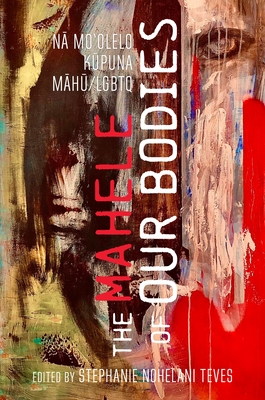The Mahele of Our Bodies: Nā Moʻolelo Kūpuna Māhū/LGBTQ

The Mahele of Our Bodies: Nā Moʻolelo Kūpuna Māhū/LGBTQ
"They put up barriers, the same way with our bodies. Our bodies are meant for us to be very expressive. Hawaiians were like that. . . . To me it was an expression of the mahele of our bodies, the restriction of our bodies, the control of our expression of our bodies."
--Kuʻumeaaloha Gomes
- Kuʻumeaaloha Gomes
- Noenoe Silva
- Nawahine Dudoit
- Hōkūokalani Akiu
- Kimo Alama Keaulana
- Aunty Kim Haʻupu
- Manulani Aluli Meyer
- Bradford Lum
- Lani Kaʻahumanu
- Keoni Kaʻapuni
PRP: 279.00 Lei
Acesta este Prețul Recomandat de Producător. Prețul de vânzare al produsului este afișat mai jos.
223.20Lei
223.20Lei
279.00 LeiLivrare in 2-4 saptamani
Descrierea produsului
"They put up barriers, the same way with our bodies. Our bodies are meant for us to be very expressive. Hawaiians were like that. . . . To me it was an expression of the mahele of our bodies, the restriction of our bodies, the control of our expression of our bodies."
--Kuʻumeaaloha Gomes
- Kuʻumeaaloha Gomes
- Noenoe Silva
- Nawahine Dudoit
- Hōkūokalani Akiu
- Kimo Alama Keaulana
- Aunty Kim Haʻupu
- Manulani Aluli Meyer
- Bradford Lum
- Lani Kaʻahumanu
- Keoni Kaʻapuni
Detaliile produsului









